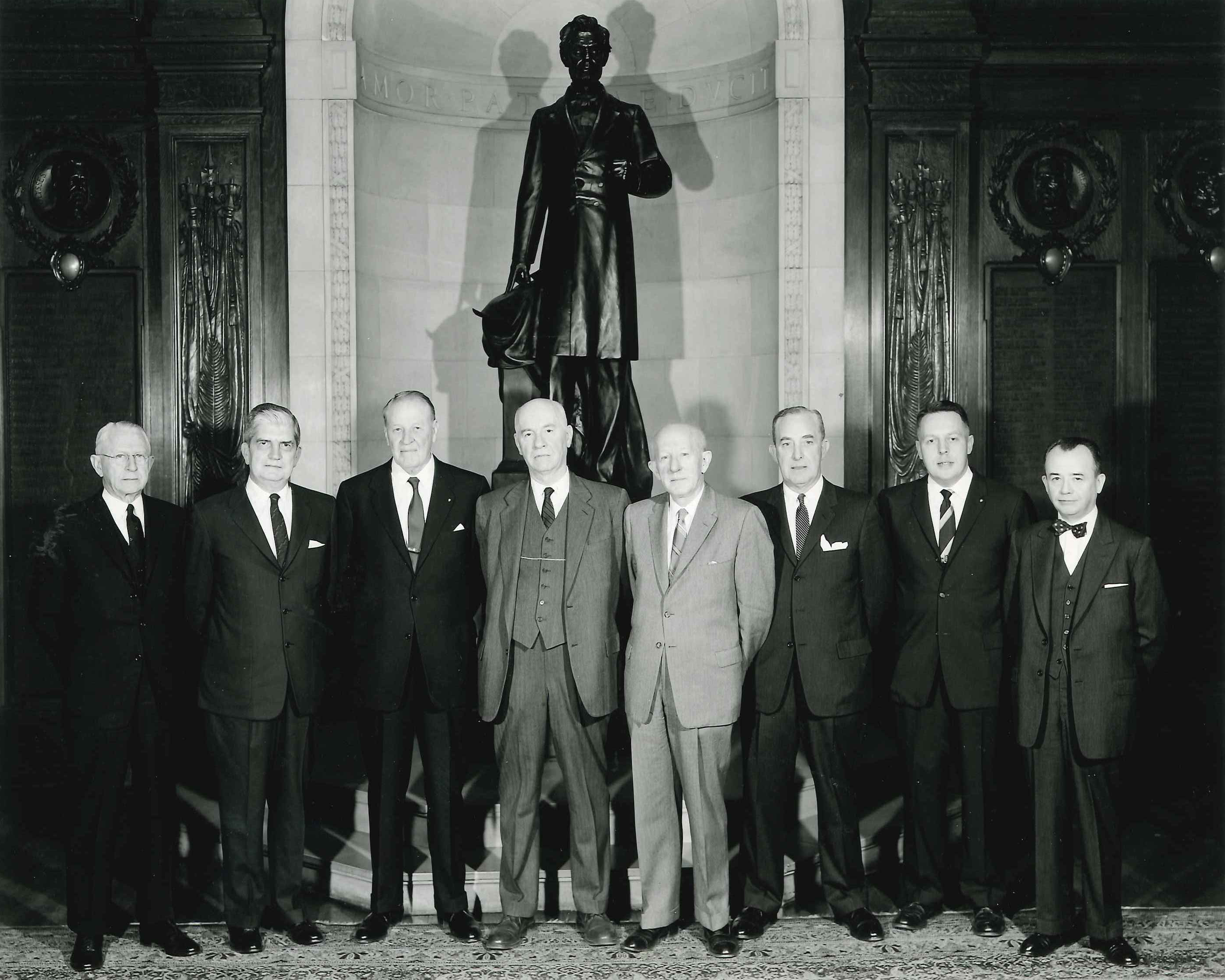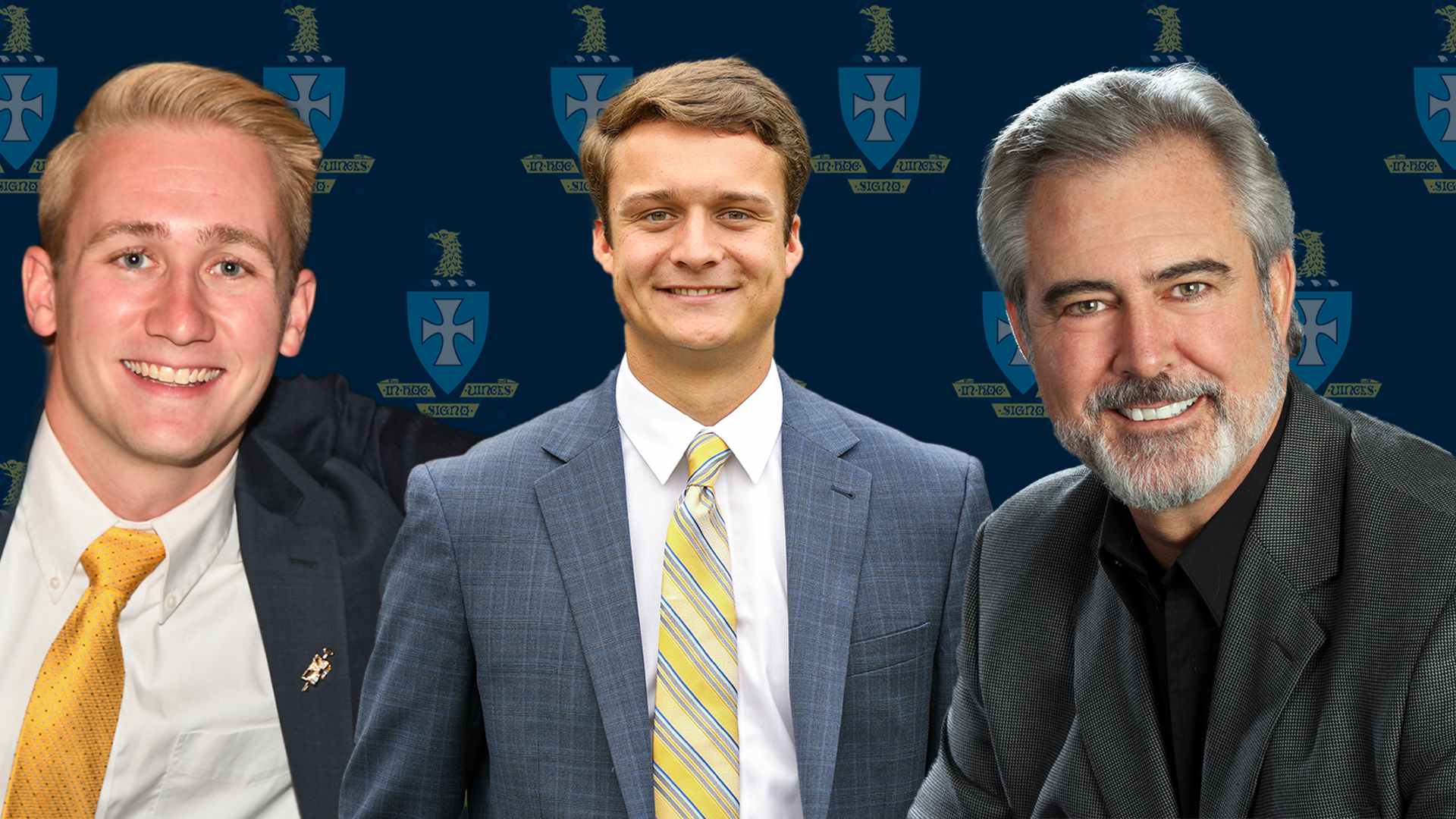Fraternity
- 1714 Hinman Ave. Evanston, IL 60201
- headquarters@sigmachi.org
- Directory

Ken Brown, CORNELL 1974, graduated from Cornell University in Ithaca, New York, determined to engineer solutions for energy problems facing the United States and elsehwere, and began his career with Stone & Webster Engineering Corp. He later held management positions at Price Waterhouse-Coopers and General Electric, and served as CEO of EVonyx and president of the Skidmore, Owings & Merrill architecture. From 2002 to 2014, he was managing director and partner of One Equity Partners, the private equity division of JPMorgan Chase.
Brown, who won Sigma Chi’s 1974 International Balfour Award as the Fraternity’s most outstanding graduate that year, sat down virtually in MAY 2022 with 2020 International Balfour Award winner Sam Romes, LOUISVILLE 2020, and 2021 International Balfour Award winner Jared Kuykendall, OKLAHOMA STATE 2021, to talk about his experience Joining the Sigma Chi chapter at Cornell, as well as his tips for responding to and navigating change during your professional career.
It was a big leap for me to head east to Cornell. Nobody in the family had ever gone that far away to college, and I can tell you that the first days on that trip out there, it seemed a little bit scary. My dad was a big encouraging factor in all of that. He was part of Sigma Alpha Epsilon (SAE) at what was then Colorado A&M [University]. He always thought [joining Greek-letter life] was a great experience, and I can tell you that some of his dearest, longest-term friends are friends that he made at the fraternity when he was at Colorado A&M.
He wasn’t forceful about [my decision to join a fraternity]. He said, “You should look at it and decide for yourself.” He wasn’t at all pushing SAE or any other particular fraternity. He just said, “Take a look. It was good for me. Maybe it’ll be good for you.”
I was impressed with the Alpha Phi chapter of Sigma Chi [at Cornell University] because it was the most diverse chapter that I’d seen. Some of the places you go to, they were all athletes or they were all intellectuals or one thing or the other. [But Sigma Chi] was an interesting collection of all kinds of people and from all parts of the world. … [They were] diverse, interesting, intellectually curious, gentlemanly, decent, all of those things. It was just an attractive bunch of people that you wanted to be associated with.
I started out firmly believing that I wanted to be impactful in the energy environment for the U.S. when I left Cornell. When I was in school, sophomore year was the great blackout in New York, and certainly the first inkling in the United States that we had some energy limitations and issues to be dealt with. I took a seminar with a professor there. It was just really transformative in the way he addressed energy issues and I thought, “I want to be in the energy field and I want to find some solutions. I want to find [solutions to those issues] — whether they’re nuclear or solar or more efficient energy uses, whatever,” and [so I] focused on engineering in that regard.
For people who are starting out [in their career or are considering a career change], you should understand the reality [that] not every one of your choices is at your option. One of the things we used to say at One Equity Partners is that everyone who was a partner in this private equity firm had been fired at least once from a job. Fired or the job disappeared or what have you, so things are going to change in your career, possibly not at your option. So, the measure of your success in your career is where do you go from there? How do you adapt? How do you recover from that?

From left are International Balfour Award winners Sam Romes, LOUISVILLE 2020, and Jared Kuykendall, OKLAHOMA STATE 2021, and Ken Brown, CORNELL 1974. Each won the award as the Fraternity’s most outstanding graduate during their graduation year. Photo illustration by David Jones, DEPAUW 2019.